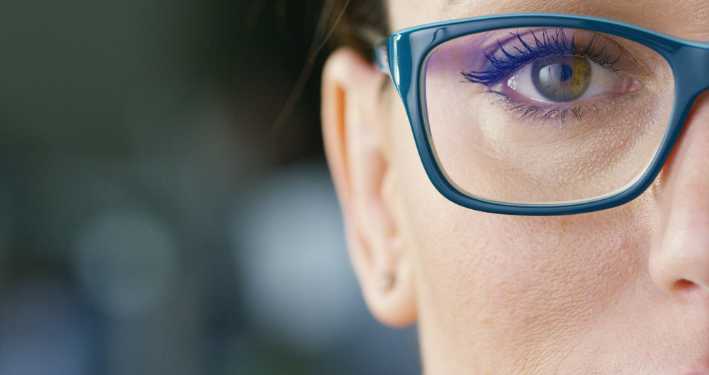By Deborah Zelinsky, O.D.
The term resiliency encompasses “the range of personal protective factors, environmental supports, and resources, as well as self-regulatory processes, engaged in response to adversity,” according to investigators writing about recovery from traumatic brain injury (TBI) for the publication Disability and Rehabilitation.
Indeed, author Mike Norton said it best when he wrote, “[As] human beings, [we] are limited only by what we allow ourselves to be limited by: our own minds. We are each the master of our own reality; when we become self-aware [of] this, absolutely anything in the world is possible.”
Norton is, at least in part, correct. Resiliency occurs at two levels – physical and mental. One level involves a person’s drive and commitment to overcome physical disabilities and do whatever necessary to regain functions lost in an accident, sports activity, or medically related event, like a stroke. At a mental level, patients with a brain injury often get stuck in fight-or-flight mode. The fighters hold a greater capacity than “flighters” to go beyond their comfort level to address and resolve problems. Other patients either “freeze “ – fail to accept their new situation – or “flop” – surrender to stressors and meekly submit to whatever happens.
The Mind-Eye Institute team found that patients with innate mental resilience seem to do better at re-building their brain functions after an injury.However, some scientists suggest resiliency following a TBI may be more than simply a matter of premorbid personality traits, psychological characteristics, and mental toughness, such as strength of mind, coping skills, mindfulness (ability to live in and accept the present), enhanced psychosocial functioning, and even a background in advanced education. Resiliency could be linked physically to brain chemistry as well.
And if that is so, cannot the ability to accept and successfully respond to challenges of a TBI be restored through changes in brain function?
Quite possibly! In fact, some experts suggest neuromodulation – modifying brain chemistry and function – may be a treatment protocol for enhancing successful rehabilitation of TBI and other injured patients.
One important mechanism for neuromodulation is retinal stimulation. Following this logic, optometry tends to be an underused method of altering brain activity. Since brain tissue composes the retina, how the retina processes environmental signals – through both image-forming (eyesight) and non-image-forming (non-eyesight) pathways — influences overall physical and mental health, including a patient’s power of resiliency.
Retinal circuitry is composed of both image-forming cells – those allowing us to ‘see’ – and non-image-forming cells, which have nothing to do with eyesight but generate signals communicating with critical brain structures below the level of consciousness. These structures govern a person’s basic physical, physiological, and psychological systems.
The Mind-Eye Institute uses therapeutic eyeglasses, filters, and other optometric interventions to stimulate retinal processing and influence brain pathways in patients who sustained a TBI, received a diagnosis with various neurological disorders, or experienced learning difficulties.
The right mix of prescriptive optometric appliances can influence and change the spatial and temporal distribution of light on the retina in ways that modify the dynamic relationship between the mind’s visual inputs and the body’s internal responses.
“Customized changes” to the brain often bring relief to patients experiencing headaches, brain fog, concentration and attention problems, sleep disorders, and even learning difficulties due to brain injury or neurological abnormalities and disease. And relief, of course, helps restore a patient’s resiliency because it takes both the body’s and the mind’s hyper-focus off post-injury pain, symptoms, and the patient’s internal sense of loss for what life used to be.
Researchers reported how imaging the brains of PTSD patients reveals structural and functional changes, including disruption of some main communication pathways among important regions of the brain. Authors of a University of Iowa Health Care study appearing in an October 2022 issue of the journal Brain contend that resilience against mood disorders like depression after a brain injury depends on which of two brain networks gets impacted in a TBI. One network associates with increased risk of developing depression, and the other with decreased risk and greater resilience.
Meanwhile, investigators writing in a 2022 issue of Molecular Psychiatry, contend a surge in stress hormones after a traumatic event can affect the brain in different ways in different people. Some people become more resilient against post-traumatic stress disorder (PTSD), depression, and other mood and behavioral anomalies than others.
All of these reported brain-related anomalies may be reflected in the retina. In fact, an increasing amount of research demonstrates how retinal degeneration parallels brain degeneration. The retina is a “window to the brain.” Viewing the retina as a map of the brain could help zero in on brain injury, thereby facilitating and individualizing rehabilitation. Studies show retinal changes mirror brain changes in patients with Alzheimer’s disease, multiple sclerosis, schizophrenia, and Parkinson’s. The retina tells us much about a person’s overall health.
Those who suffer the trauma of a brain injury or neurological disorder may do well to consider American writer Joseph Campbell’s description of resiliency. “We must be willing to let go of the life we planned so as to have the life that is waiting for us.” Or, as Louise Mathewson so aptly said, “TBI should not be thought of as Traumatic Brain Injury; it should represent “Transformed By Injury.”











